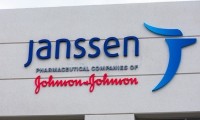-
Study identifies new amyloid-forming protein linked to early-onset dementia
- Source: drugdu
- 98
- December 11, 2023
-
Rising Cost of New Medications, Will the People Who Need Them Most be able to Afford them?
- Source: drugdu
- 99
- December 5, 2023
-
FDA Accepts New Drug Application for Karuna Therapeutics’ Novel Schizophrenia Drug
- Source: drugdu
- 101
- December 1, 2023
-
Biogen’s Aduhelm headache returns as appeals court revives part of investor lawsuit
- Source: drugdu
- 135
- October 14, 2023
-
Takeda to Pull Lung Cancer Drug from Market After Failed Confirmatory Study
- Source: drugdu
- 198
- October 10, 2023
-
First Wave plans to repurpose Sanofi’s capeserod as GI therapy
- Source: drugdu
- 216
- September 18, 2023
-
AstraZeneca Signs AI-Powered Drug Discovery Pact with Verge
- Source: drugdu
- 195
- September 12, 2023
-
Janssen’s patient programme becomes latest victim of data breach
- Source: drugdu
- 105
- September 11, 2023
-
New dementia risk score ‘calculator’ shown to strongly identify disease risk
- Source: drugdu
- 116
- August 31, 2023
-
Study reveals gut conditions could be early sign of Parkinson’s disease
- Source: drugdu
- 120
- August 31, 2023
your submission has already been received.
OK
Subscribe
Please enter a valid Email address!
Submit
The most relevant industry news & insight will be sent to you every two weeks.













